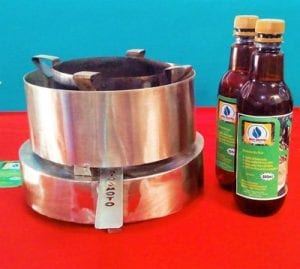
Agriculture
November 12, 2024
Bio Moto
Read SolutionImplemented by
International Research & Development Africa Ltd
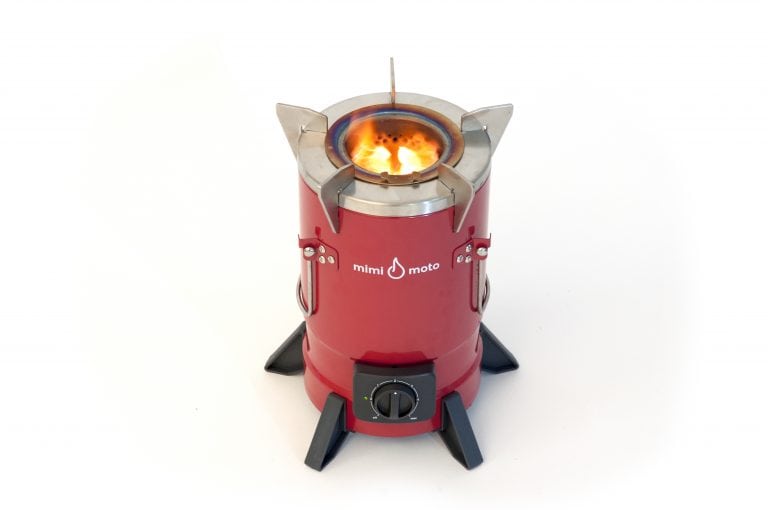
Updated on November 30, 2024
·Created on June 11, 2016
Mimi Moto is a forced-air gasifier stove with two burning chambers, an inbuilt fan and battery within a solar panel.
Designed in Holland, the Mimi Moto is a forced-air gasifier cookstove designed to operate using locally produced biomass pellets as fuel. Two removable burning chambers are used; the larger for high powered flame and a smaller biomass chamber for low power simmering. The built-in fan is powered by an external rechargeable battery pack. A solar panel is included to charge the battery pack for off-grid applications. Promotional and instructional videos about the stove available.
Mimi Moto is based in the Netherlands.
Target SDGs
SDG 7: Affordable and Clean Energy
SDG 3: Good Health and Well-Being
Market Suggested Retail Price
$33.50
Target Users (Target Impact Group)
Household
Distributors / Implementing Organizations
Several international distributors including the Clean cooking Revolution in South Africa, Inyenyeri in Kenya, and Supamoto Energy in Zambia. Contact MimiMoto for a list of current distributors.
Competitive Landscape
Countries
Argentina, Bangladesh, Burkina Faso, Cambodia, Cote d’Ivoire, Gambia, The, Ghana, India, Indonesia, Laos, Malawi, Netherlands, Rwanda, South Africa, Tanzania, Uganda, Vietnam, Zambia
Manufacturing/Building Method
The Clean Cookstoves are produced in specialized factories throughout South Africa, that also produce household appliances. These professional production facilities are able to mass produce the Clean Cookstoves in high quantities.
Intellectural Property Type
Patent
User Provision Model
Users can obtain the stove and pellets in Zambia through Supamoto Energy.
Users can obtain the stove and pellets in Kenya through Inyenyeri
Mimi Moto gasifier cookstoves can be donated to families in South Africa through the clean cooking revolution website. One family can be provided with a cookstove for 42.51 USD, and discounts are available when sponsoring multiple families. Users in South Africa can purchase the stove for 23.63 USD (ZAR 350). Users can also pay in installments or enroll in a micro credit program. Contact Clean Cooking Revolution for South African distribution information.
Distributions to Date Status
The exact number of stoves distributed to date is unknown, however, many field cases of disseminated on are reported in Mimi Moto's Facebook page along with a gallery in their site.
Fuel type
Wood pellets
Pot type
Both
Thermal efficiency (%)
46.8
PM emissions (g/MJ delivered to pot)
13.94
CO emissions (g/MJ delivered to pot)
0.154
Time to boil (min/L)
Unknown
Design Specifications
Design specifications include two removable combustion chambers, an integrated fan, an inbuilt battery pack (5000 mAh), separate solar panel (6W) with a USB output (5V) that enables charging phones an USB powered devices and a 3.5 m long cable. Fan ran times are 28 hours at low fan speed (0) and 9 hours at high fan speed (max).
Further technical specifications about the solar panel are provided by the manufacturer (see references).
Technical Support
Provided by the manufacturer. Users guide, instructional video and basic assembly video available. Frequently Asked Questions are also answered on their website. For further support, contact Mimi Moto.
Replacement Components
Unknown. A basic assembly video is available on Vimeo.
Lifecycle
5-10 years.
Manufacturer Specified Performance Parameters
Mimi Moto is an affordable cookstove specifically designed to burn cheap, locally produced biomass fuel such as wood pellets in a very clean and efficient way. The stove reduces the amount of harmful smoke and easily complies with the air quality guidelines stated by the WHO. It also improves household incomes by reducing fuel consumption and helping save 12 USD/month on fuel.
Vetted Performance Status
Tier 4 Performance on Efficiency/Fuel Use, Emissions and Indoor Emissions. The stove filled with approximately 800 gram of 6mm wood pellets and will burn about 1 to 1.5 hour. One household will require approximately 20 kg of wood pellets per week.
Safety
Guidelines provided by the manufacturer in the user guide must be followed to avoid burns and spillovers or malfunctions when manipulating the stove. A cooking tool is provided for handling the hot chambers and tending the fire.
Complementary Technical Systems
The Clean Cookstoves are standard equipped with a solar panel, to charge the rechargeable battery pack when working off-grid.
Academic Research and References
Jagger, P., Das, I (2018). Implementation and scale-up of a biomass pellet and improved cookstove enterprise in Rwanda. Energy for Sustainable Development, Volume 46, October 2018, Pages 32-41.
Quinn, A., et al (2018). An analysis of efforts to scale up clean household energy for cooking around the world. Energy for Sustainable Development, Volume 46, October 2018, Pages 1-10.
Bussmaan, J (2016). Developing An Innovative Value Proposition To Replace Paraffin In South African low-income communities. MSc. MUE Urban Environmental Management. Wageningen University and Research.
Clean Cooking Revolution. n.d. Clean Cooking Alliance.
Inyenyeri. n.d. Clean Cooking Alliance.
SupaMoto. n.d. SupaMoto.
MimiMoto. n.d. Mimi Moto.
Clean Cooking Revolution. n.d. Crunchbase.
Mimimotosa. n.d. www.facebook.com.
Gallery – Mimi Moto. n.d. MimiMoto.
FAQ – Mimi Moto. n.d. MimiMoto.
Mimi Moto Cookstove Instructional Video. 2017. www.youtube.com.
Mimi Moto Basic Assembly. 2015. www.vimeo.com.
Mimi Moto 6W Solar Panel. n.d. Mimi Moto.
Mimi Moto Cookstove Promotion and Instruction Video 151117. 2015. www.vimeo.com.
Global Alliance for Clean Cookstoves. 2015. IWA Tiers of Performance Report. www.mimimoto.nl. Global Alliance for Clean Cookstoves.
DeFoort, Morgan , Christian L’Orange, Cory Kreutzer, Nathan Lorenz, Wiecher Kamping, and Jan Alders. n.d. Stove Manufacturers Emissions & Performance Test Protocol (EPTP). www.cleancooking.org. Engines & Energy Conversion Lab – Colorado State University, Envirofit International, Philips.
Global Alliance for Clean Cookstoves . 2014. The Water Boiling Test (Version 4.2.3): Cookstoves Emissions and Efficiency in a Controlled Laboratory Setting. www.1library.net. Global Alliance for Clean Cookstoves.
Compliance with regulations
Tier 4 Performance on Efficiency/Fuel Use, Emissions and Indoor Emissions.
Evaluation methods
WBT 4.2.3
CSU EPTP
Other Information
An impact evaluation of Inyenyeri implementation of Mimi moto in Rwanda can be found here.
A Cambodian case study showed Mimi moto provided the highest amount of fuel savings among compared clean cookstoves.

Agriculture
November 12, 2024
Implemented by
International Research & Development Africa Ltd

Agriculture
June 22, 2024
Implemented by
Ampersand
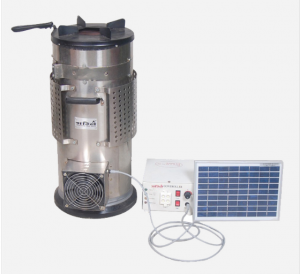
Agriculture
November 30, 2024
Implemented by
NDMI Renewable Energy Private Limited
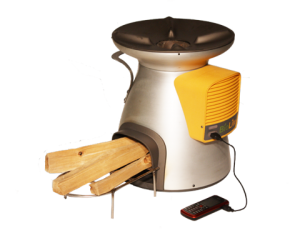
Agriculture
December 2, 2024
Implemented by
BioLite
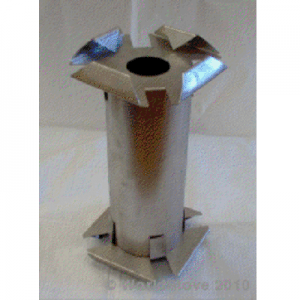
Agriculture
November 30, 2024
Implemented by
WorldStove
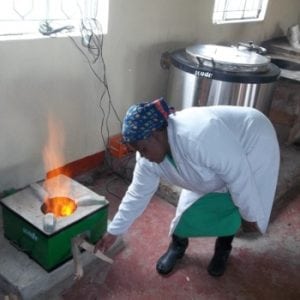
Agriculture
November 30, 2024
Implemented by
Sustainable Community Development Services (SCODE)
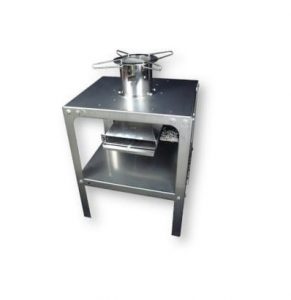
Agriculture
December 27, 2023
Implemented by
René Núñez Suárez

Agriculture
November 30, 2024
Implemented by
KOKO Networks
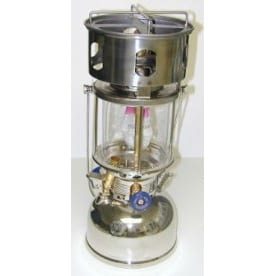
Agriculture
November 21, 2024
Implemented by
BriteLyt
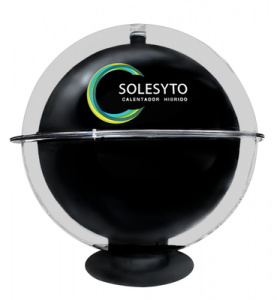
Agriculture
January 28, 2024
Implemented by
Energryn
Have thoughts on how we can improve?
Give Us Feedback